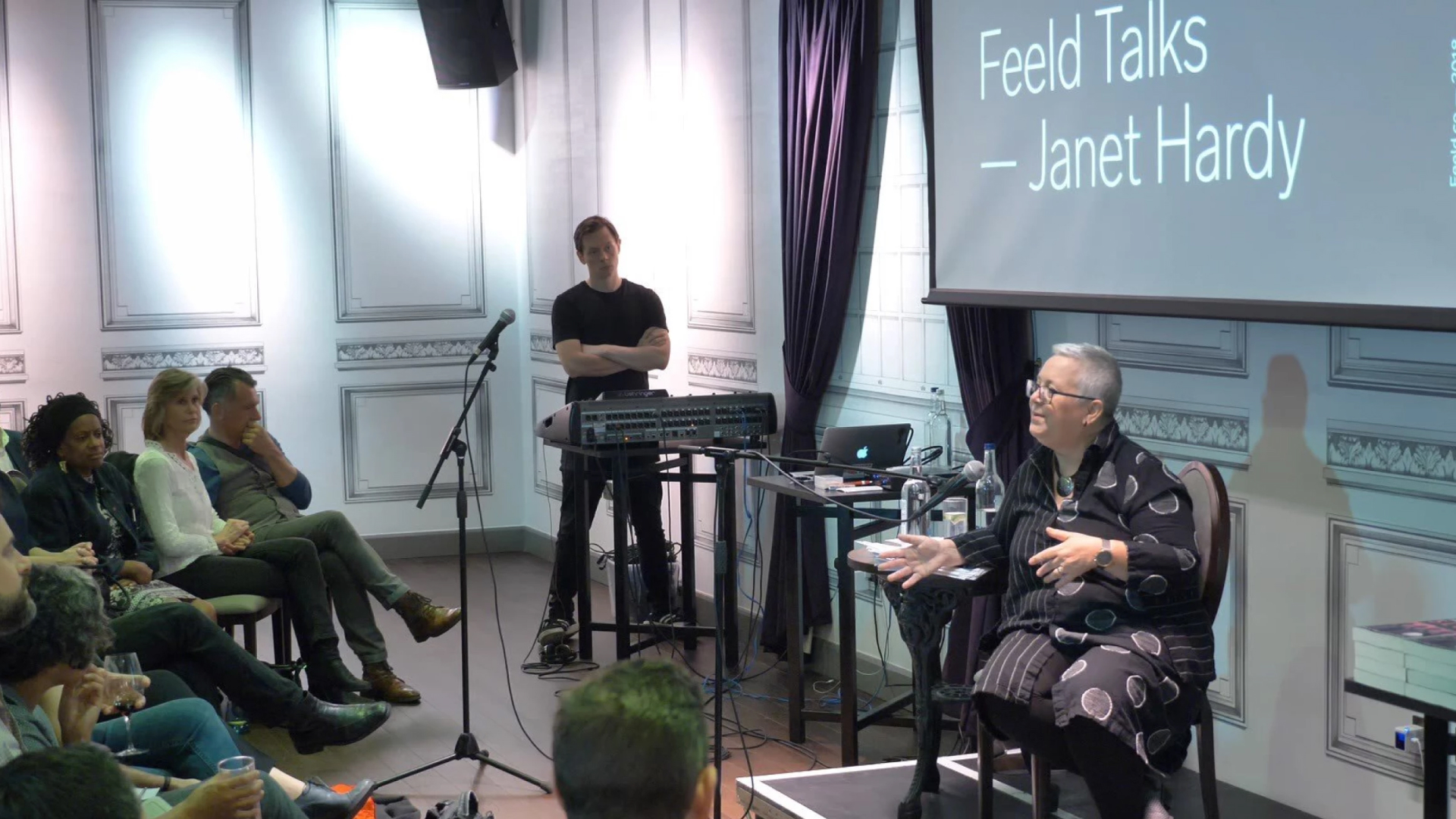
In anticipation for her upcoming Feeld Talk, we asked Janet a few questions on ethical promiscuity, new relationship structures & the influence of online dating.
Janet W. Hardy is a sex educator and the author of the best-selling book The Ethical Slut. For her first work visit to the UK, Janet will make a speaking appearance as part of our Feeld Talks series. Prior to the event, we asked her a few questions touching on her work, online dating’s influence on developing new relationship structures and the evolution of the word slut.
Feeld: To people that are not familiar with your work, how would you summarise it?
Janet Hardy: I write about alternative sexualities, relationships and genders — all from the point of view of my own personal history and those of people I know. My best-known book is The Ethical Slut, co-authored with my dear Dossie Easton, but I’ve written about everything from my personal gender history (in Girlfag: A Life Told in Sex and Musicals) to erotic spanking (in Spanking for Lovers) and beyond.
I have two new books appearing soon — an entirely new, illustrated edition of my very first book, The Sexually Dominant Woman: An Illustrated Guide for Nervous Beginners, coming from Greenery Press in November; and a memoir of my life in kink, Impervious: Confessions of a (semi-)Retired Deviant, coming from SinCyr Press in the spring.
F: Could you comment on the influence of online dating spaces on the practice of ethical open relationships?
JH: I think the existence of online spaces in general has been hugely important to the growth and visibility of alternatives to monogamy. Before, people who were trying to figure out new ways to love were hacking their way through the undergrowth with machetes — it was hard to find other people who were confronting the same challenges, and harder yet to find potential partners who weren’t scandalised by the idea. These days, it’s all a couple of keystrokes away.
That said, online spaces have some serious issues — when you meet someone online, you really have no idea who they are, what values they hold, or what their history might be. Thus, dating online requires a great deal of attention to physical and emotional safety.
F: This is your first time in the UK in relation to your work and we felt that it was long overdue, considering the immediate and enthusiastic response. What do you make of the perception of your work outside the US and do you think there are places that are particularly open to it? Where does the UK stand on this, in your opinion?
JH: There’s always a bit of “prophet without honour in her own country” when I travel overseas — a talk that would draw a dozen people in my hometown of Eugene, Oregon, can fill an auditorium in another city. It’s thrilling to see the widespread acceptance of our thoughts in other countries and cultures — The Ethical Slut has been published in fifteen languages, and Dossie and/or I have spoken on every continent but Africa and Antarctica (and we’re open to invitations for those!).
In general, openness to our message tends to track to progressive politics, and to exposure to a wide variety of ideas and practices. College towns love our book, as do most big cities. Small towns and suburbs, not so much.
I have several dear friends in the UK who are excellent sluts, but I also know that your country is undergoing some of the same kinds of political upheaval as mine, with sex panics and other forms of conservative backlash. In general, though, I don’t know where the UK stands on these issues; I hope I’ll find out with this visit!
F: How would you say the meaning of the word “slut” has changed from when you wrote your book to today?
JH: The way the word has been used for decades among gay men — as a friendly acknowledgement of the importance of sex in people’s lives, and as a compliment for someone who has a lot of excellent sex — is spreading gradually throughout other cultures, as we reclaim our right to be sexual in whatever way, and with whatever person(s), looks good to us.
“Slut walks” are an annual event in many cities, and in general, many men, women and others are proclaiming their sluthood with pride.
When we wrote the first edition of the book, back in 1997, people were shocked by our title; these days, we see people running personal ads stating that they are ethical sluts (and other people are running personal ads saying “no ethical sluts,” which is fine with us — better to find out ahead of time).
Related Articles

Fat4Fat: The liberatory pleasure of f*cking other fat people
Sexual freedom comes in many forms. For Robin Zabiegalski, it arrived in the bodies of other fat people.

